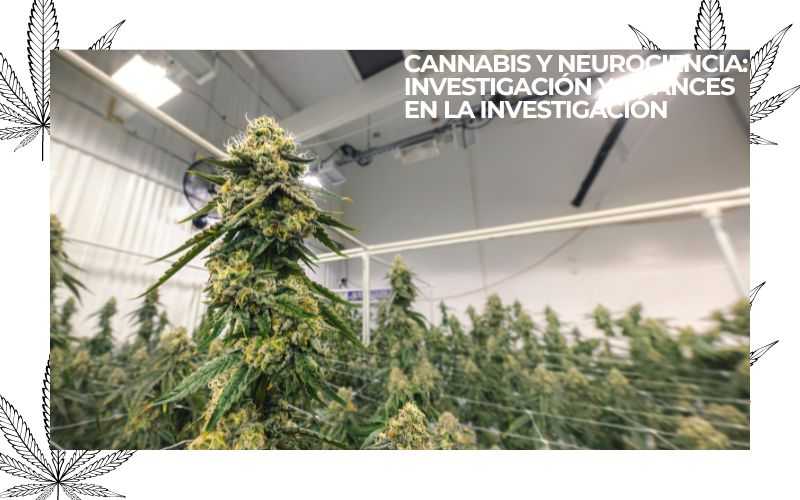Sin categorizar
Cannabis and Neuroscience: Research and Advances in Research
Cannabis and Neuroscience: Research and Advances in Research
The relationship between cannabis and neuroscience has been the subject of growing interest in recent years, as scientists have begun to better understand how cannabinoids interact with the brain and nervous system.
In this article, we will delve into the current research on cannabis and neuroscience in detail, examining scientific advancements, the latest findings, and potential implications for mental health and the treatment of neurological diseases.
1. Understanding the Interaction between Cannabis and the Brain
To comprehend the relationship between cannabis and neuroscience, it’s crucial to consider how cannabinoids interact with the brain and nervous system.
Cannabinoids are chemical compounds found in cannabis, with the most well-known being tetrahydrocannabinol (THC) and cannabidiol (CBD).
These compounds act on cannabinoid receptors in the brain and nervous system, which can have a variety of effects on brain function and behavior.
THC is the primary psychoactive component of cannabis and is known to activate cannabinoid receptors in the brain, producing effects such as euphoria, relaxation, and alterations in time and perception.
CBD, on the other hand, is non-psychoactive and is believed to modulate the effects of THC and has a variety of potential therapeutic effects, including anti-inflammatory, anxiolytic, and analgesic properties.
2. Current Research on Cannabis and Neuroscience
Current research on cannabis and neuroscience spans a wide range of areas, from basic neurobiology to clinical neuropharmacology.
Scientists are exploring how cannabinoids affect different neurotransmitter systems in the brain, as well as their role in brain development, learning and memory, and neuronal plasticity.
Additionally, clinical studies are being conducted to evaluate the therapeutic potential of cannabis in the treatment of neurological diseases and mental disorders.
Some studies have demonstrated that cannabis may have neuroprotective effects, meaning it can protect brain cells from damage and degeneration.
Other studies suggest that cannabis may have beneficial effects on neurogenesis, the process of forming new brain cells, which could have implications for the treatment of neurodegenerative diseases such as Alzheimer’s and Parkinson’s.
Furthermore, clinical studies are underway to evaluate the potential of cannabis in treating mental disorders such as anxiety, depression, post-traumatic stress disorder (PTSD), and schizophrenia.

3. Implications for Mental Health and Treatment of Neurological Diseases
Advancements in research on cannabis and neuroscience carry significant implications for mental health and the treatment of neurological diseases. While much remains to be learned about the effects of cannabis on the brain and mind, current findings suggest it could hold significant therapeutic potential in treating a variety of neurological conditions and mental disorders.
In the treatment of chronic pain, cannabis has shown efficacy in alleviating symptoms and improving patients’ quality of life.
For post-traumatic stress disorder (PTSD) treatment, cannabis has shown promise in reducing anxiety, improving sleep, and aiding patients in recovering from trauma.
In treating neurodegenerative diseases such as Alzheimer’s and Parkinson’s, cannabis could have protective effects on brain cells and help reduce disease progression.
4. Future Research and Development Directions
As research on cannabis and neuroscience continues, new questions and areas of study are likely to emerge.
Scientists are keen on better understanding the mechanisms of action of cannabinoids in the brain, as well as developing new cannabinoid compounds and cannabis-based treatments for a variety of neurological and mental disorders.
Further research is needed to understand how different cannabinoid compounds affect different neurotransmitter systems in the brain and how these effects may vary based on dosage and duration of use.
Additionally, studies are underway to evaluate the therapeutic potential of new cannabinoid compounds, as well as to develop more effective ways of administering medicinal cannabis, such as extended-release formulations and inhalation delivery.
5. Conclusions: Perspectives for the Future of Cannabis and Neuroscience Research
In conclusion, research on cannabis and neuroscience is continually evolving and holds promise for significant advancements in treating neurological diseases and mental disorders.
While many questions remain unanswered and challenges lie ahead, current findings suggest that cannabis could hold significant therapeutic potential for a variety of neurological and mental conditions.
With ongoing investment in research and development, we may see new cannabis-based treatments and therapies that enhance the quality of life for millions of people worldwide.
If you’re looking for high-quality cannabis seeds, Pure Instinto is an excellent choice that meets all these criteria and will provide you with a satisfying shopping experience.

